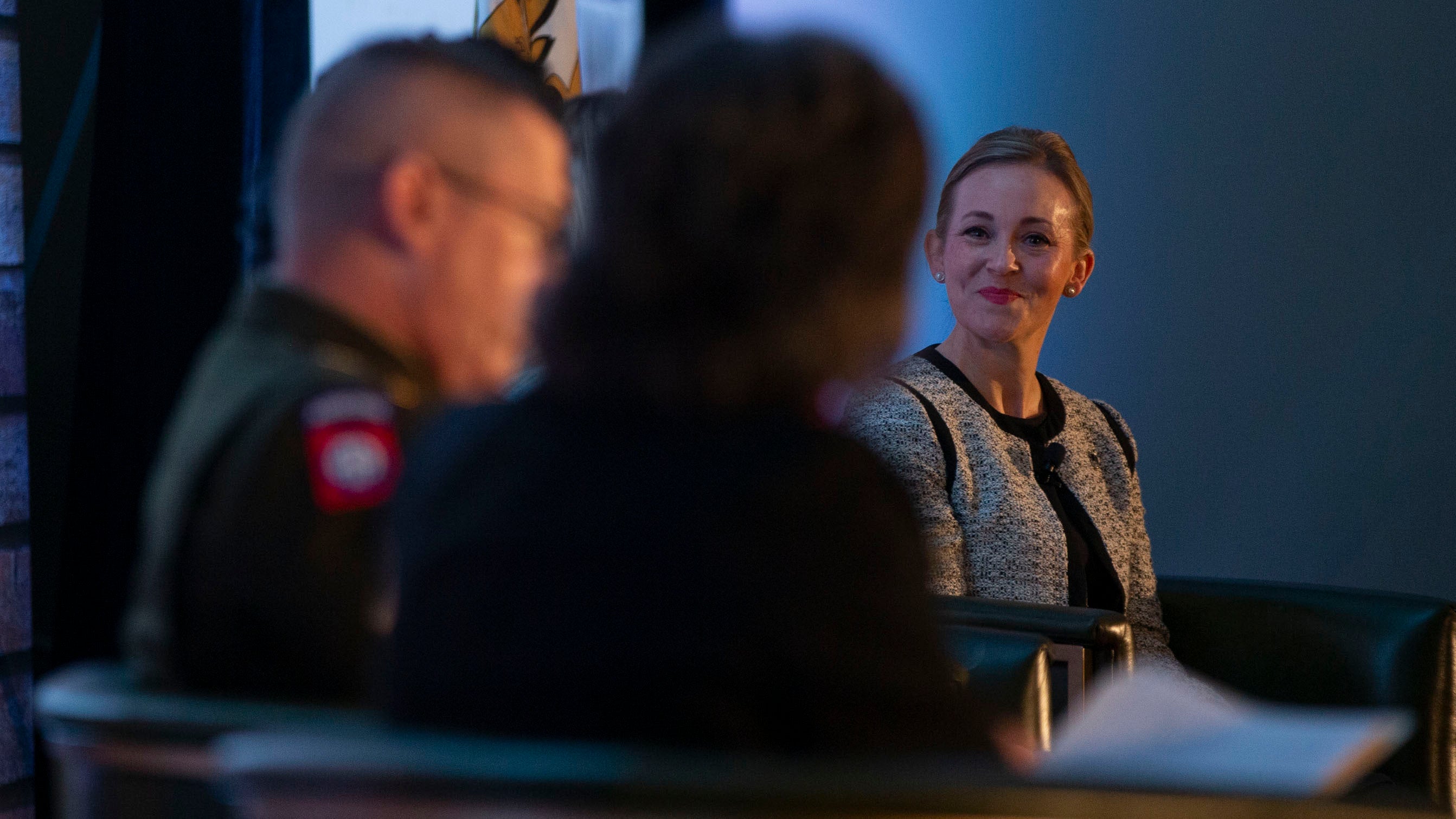Army Champions ‘Holistic’ Care for Soldiers, Families
Army Champions ‘Holistic’ Care for Soldiers, Families

From financial education to counseling services, the Army is working to boost a holistic approach to taking care of soldiers and families.
Resources that support resilience and help prevent harmful behaviors can be useful for soldiers and families at any point in their careers, said Robyn Mroszczyk, an Army spouse and the financial education program manager in the Army G-9.
“Life happens, milestones happen. There’s all of these different personal and professional points in a soldier's career but also within a family’s holistic life and journey,” Mroszczyk said during a military family forum Oct. 10 at the Association of the U.S. Army’s 2023 Annual Meeting and Exposition. “It doesn’t matter where you are in the spectrum. Everybody can use assistance.”
To better streamline these efforts, the Army is aligning the Army Resilience Directorate under the Army G-9, led by Lt. Gen. Kevin Vereen, deputy Army chief of staff for installations. This way, “we can really look at [resilience] much more holistically and ensure that we’re getting upstream and [implementing] some programs … to ensure that we’re getting [ahead] of any … harmful behaviors,” said Sgt. Maj. Michael Perry, senior enlisted adviser to the Army G-9.
More spouses have been seeking out nonmedical counseling more often, said Erika Slaton, director of Military Community Support Programs. “[The] nonmedical counseling program [is] a way for us to provide support around those everyday military life issues that can cause stress in a military context, whether it’s communication with a spouse, whether it is parent to child communication, whether it’s relationships, whether it’s sleep loss,” Slaton said.
Supportive leadership and trust are key to ensuring soldier resilience, Perry said. “Confidentiality is very, very important. This is where I would say leadership is critical to a lot of the programs that we have to implement,” he said. “When soldiers trust their leaders … and you have these cohesive teams, those soldiers will actually feel very empowered, and they feel like they can bring their problems to their leadership.”
Understanding soldiers’ financial situation is also a key part of understanding their wellness and their risk of engaging in harmful behaviors. “We don’t talk about finances,” said Mroszczyk. “Yes, there’s going to be times when there are more bills than there is money coming in. … Maybe it’s because they didn't have affordable housing. Maybe it’s because our spouse lost their job in the middle of a permanent change of duty station. We have to look at everything holistically.”
Just as soldiers train, spouses and families can adopt a training mindset to foster resilience, Perry said. “We have to train our young soldiers, our spouses and our family members to be resilient,” he said. “There’s a ton of resources out there, so we just have to expose them to that.”
— Karli Goldenberg

